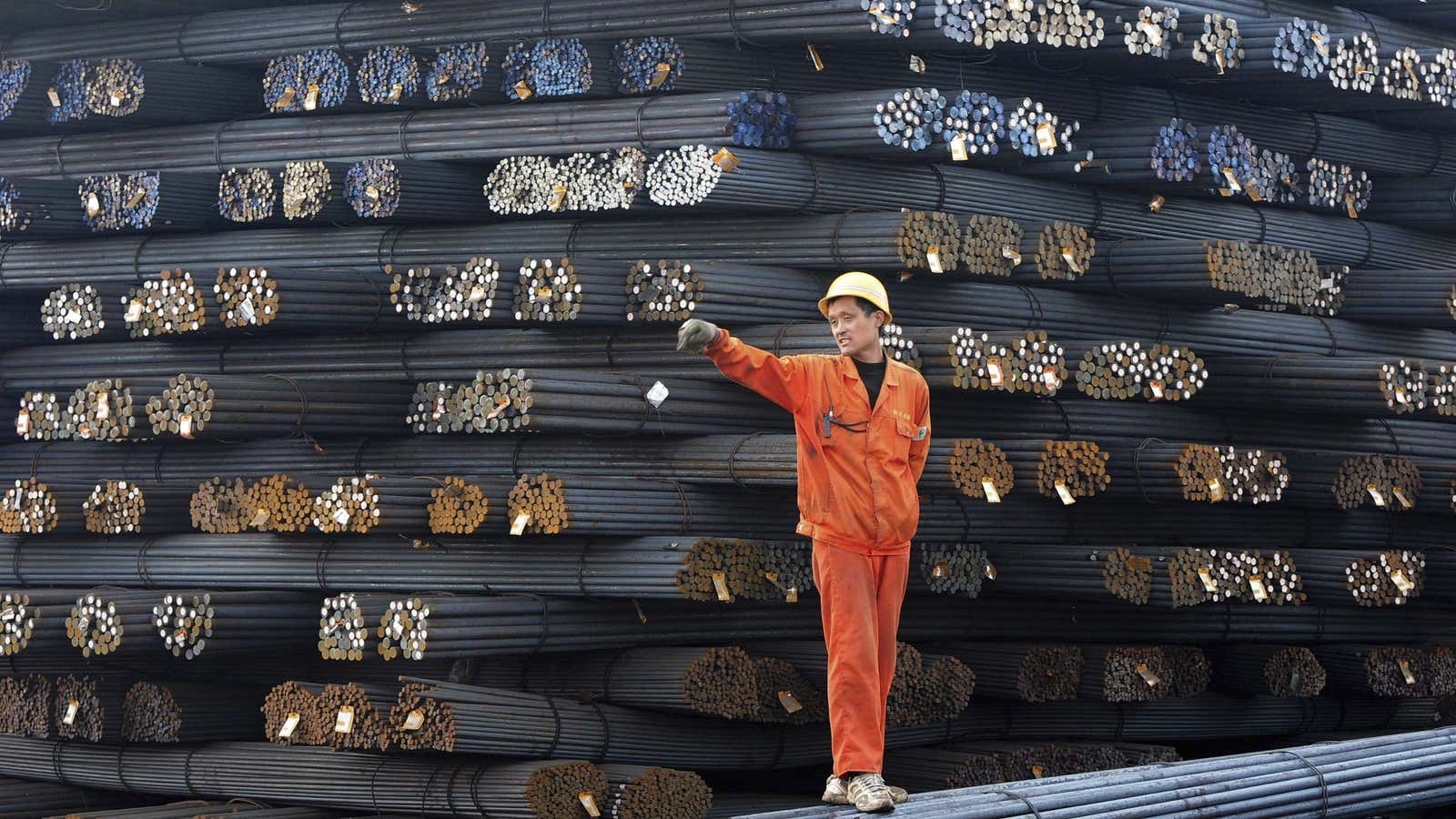Qingdao, China’s third-largest port, has long been a crucial manufacturing link and one of the key hotspots in the global commodities trade, due to the vast amounts of raw materials like iron ore, copper and aluminum that flow through its warehouses.
But as of last week, the port’s shipments of crucial metals have been completely frozen, as officials investigate whether or not companies have been fraudulently inflating their stockpiles. Some 20,000 metric tonnes of copper and 80,000 metric tonnes of aluminum are reportedly missing.
If the investigation finds widespread evidence of wrong-doing, it could create a ripple effect of credit squeezes and defaults. That’s because Chinese companies that struggle to get bank loans are fond of using inventories of metals like copper, which sit in bonded warehouses in port cities like Qingdao, as collateral to secure short-term loans. These loans, in turn, sometimes are used to invest into high-yielding shadow banking products.
Commodity-backed financing accounts for nearly one-third of all short-term foreign-exchange loans, or roughly $160 billion. And ”hot money” inflows into the Chinese economy, made up mostly of commodity financing and black market activity, accounted for about one-third of the growth in China’s money supply last year, Goldman Sachs analyst Max Layton told a mining conference in Chile last month.
While the hot-money influx worries Chinese officials and China bears, things really go haywire when companies illegally use one stockpile of metal as collateral for more than one loan, which appears to have been happening in Qingdao.
“We have heard that some banks in China are offering financing against photocopied warehouse receipts,” one metals trader told MetalBulletin (login required), which first broke the news of the investigation and export freeze. There is currently a hold on all commodities that have been used as collateral for financing, which includes iron ore, aluminum, alumina and bauxite, and aluminum ore, MetalBulletin said.
One big question is who will be left holding the loan losses on the “missing” materials, which could be as high as $300 million, Metal Bulletin editor Alex Harrison told Quartz. Another uncertainty is whether these investigations will spread to other locations where metals are stored, which could ultimately affect the price and availability of credit though China.
“Banks are worried about their exposure” in Qingdao, one source familiar with the warehouse told Reuters. “There is a scramble for people to head down there at the minute and make sure that their metal that they think is covered by a warehouse receipt actually exists.”
If it does spread, the probe could drive western banks, who have already been selling businesses in the commodities sector, to abandon it entirely.
Information is limited—there has been no official statement yet from any port officials, and news reports in Chinese state-run media are solely quoting foreign outlets. In the information vacuum, the rumored size of the problem is rising fast—the value of the metals reportedly involved in the investigation started at “$250 million last week [and has] already risen to in excess of $1 billion,” a second Metal Bulletin report said today.




